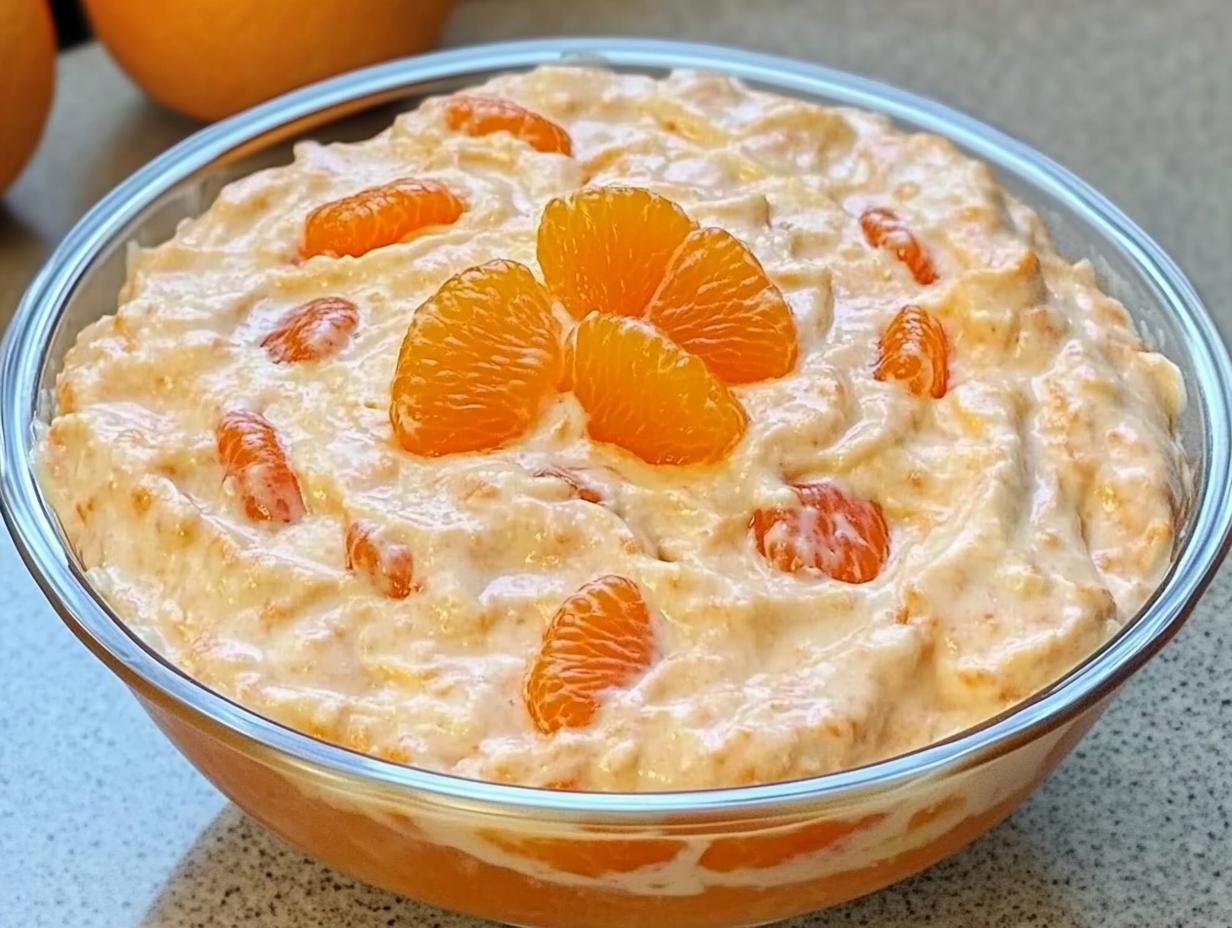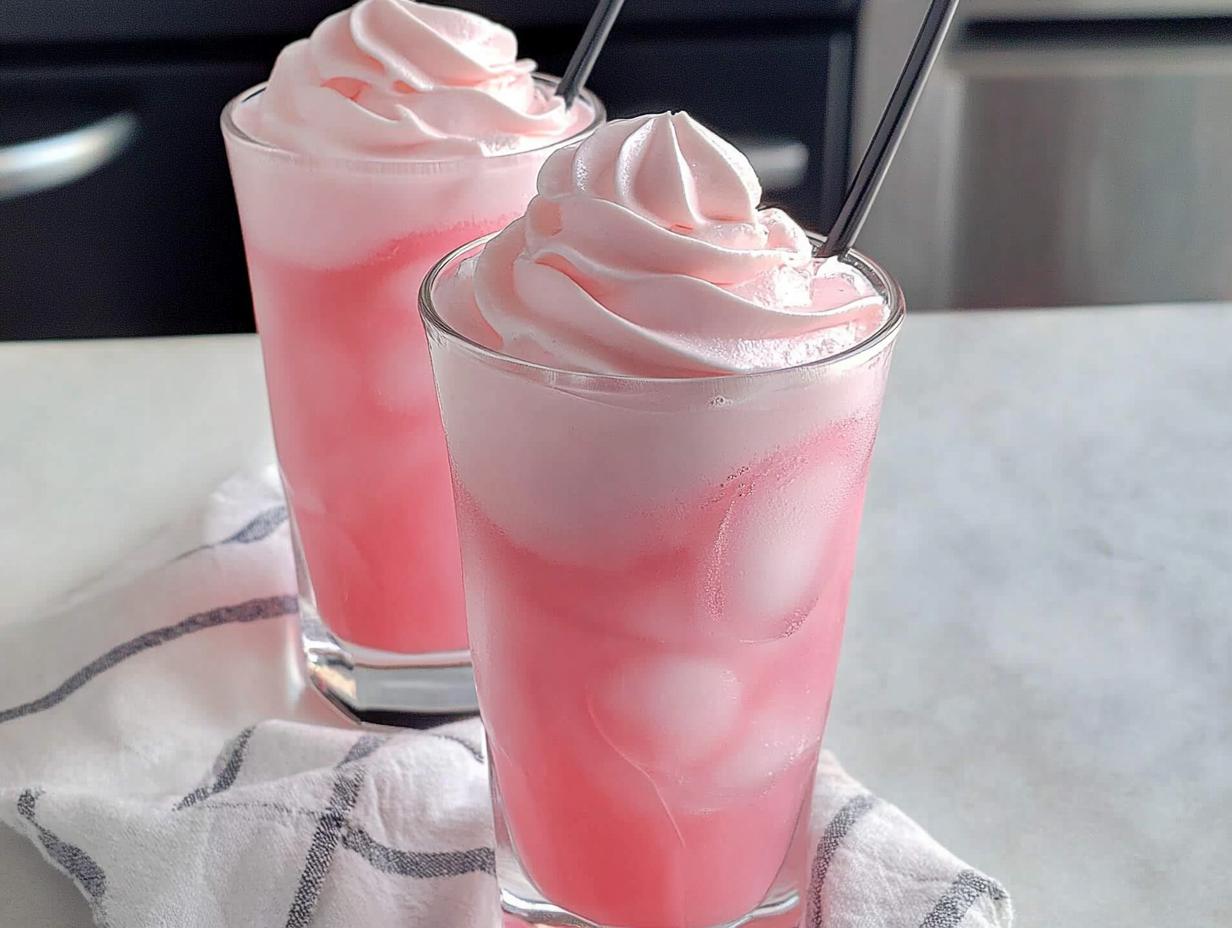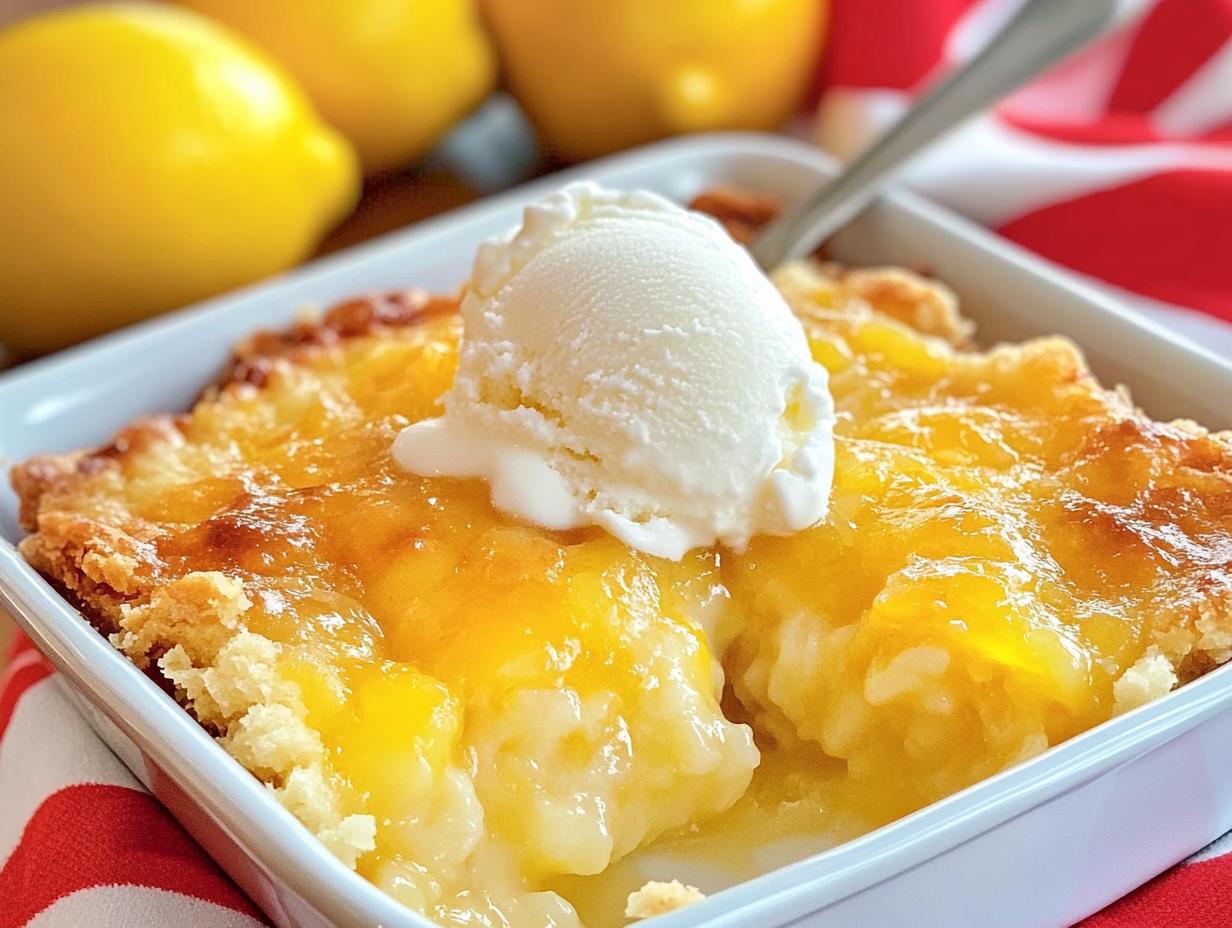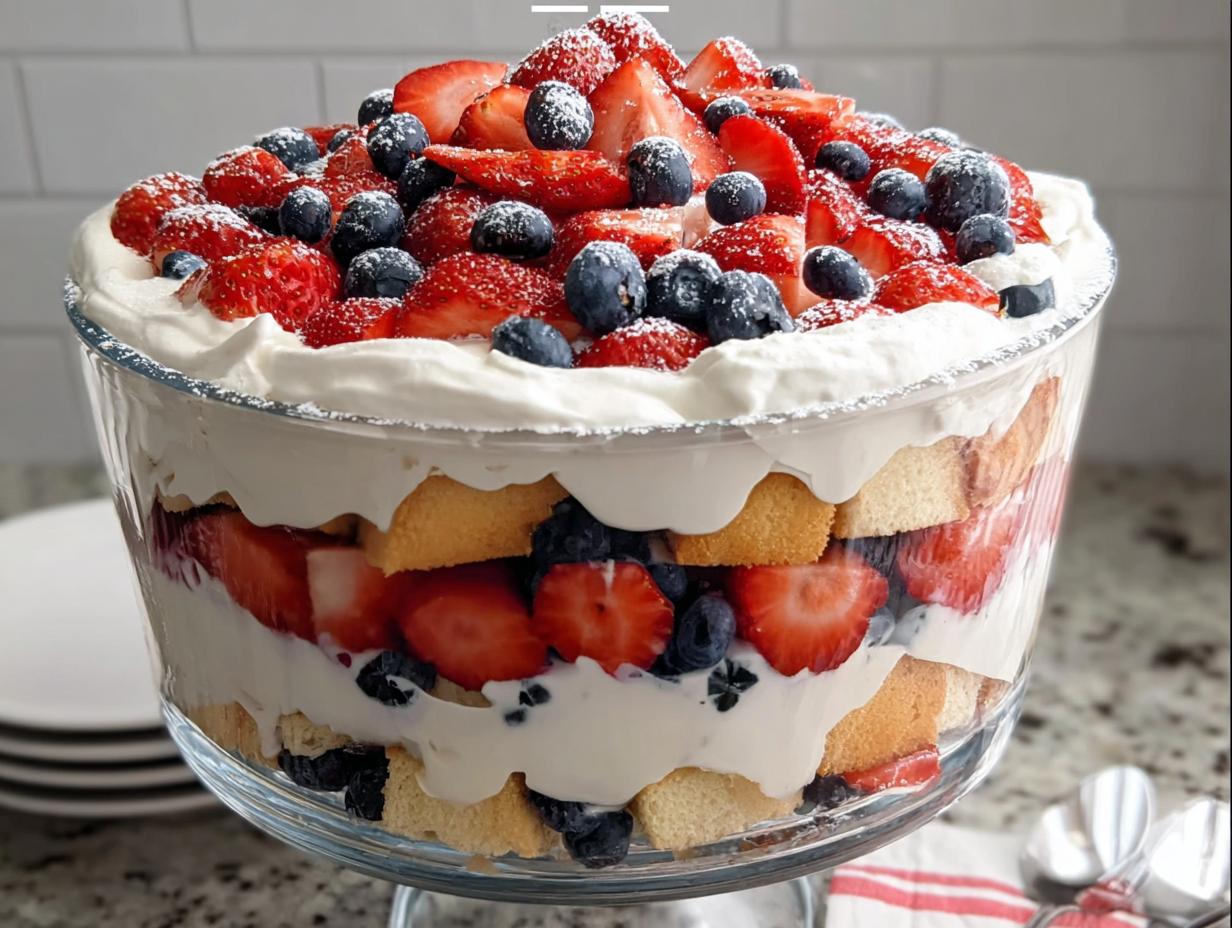Bavarian Cream Donuts Recipe—just saying it out loud brings a smile, doesn’t it? At Kitchen Yumy, we believe food should feel like a hug, and these silky, sugar-dusted donuts are exactly that. I’m Sophie, the face behind this cozy little corner of the internet, and I created this recipe not just to satisfy your sweet tooth, but to remind you that the best kind of baking is the kind that brings people together.
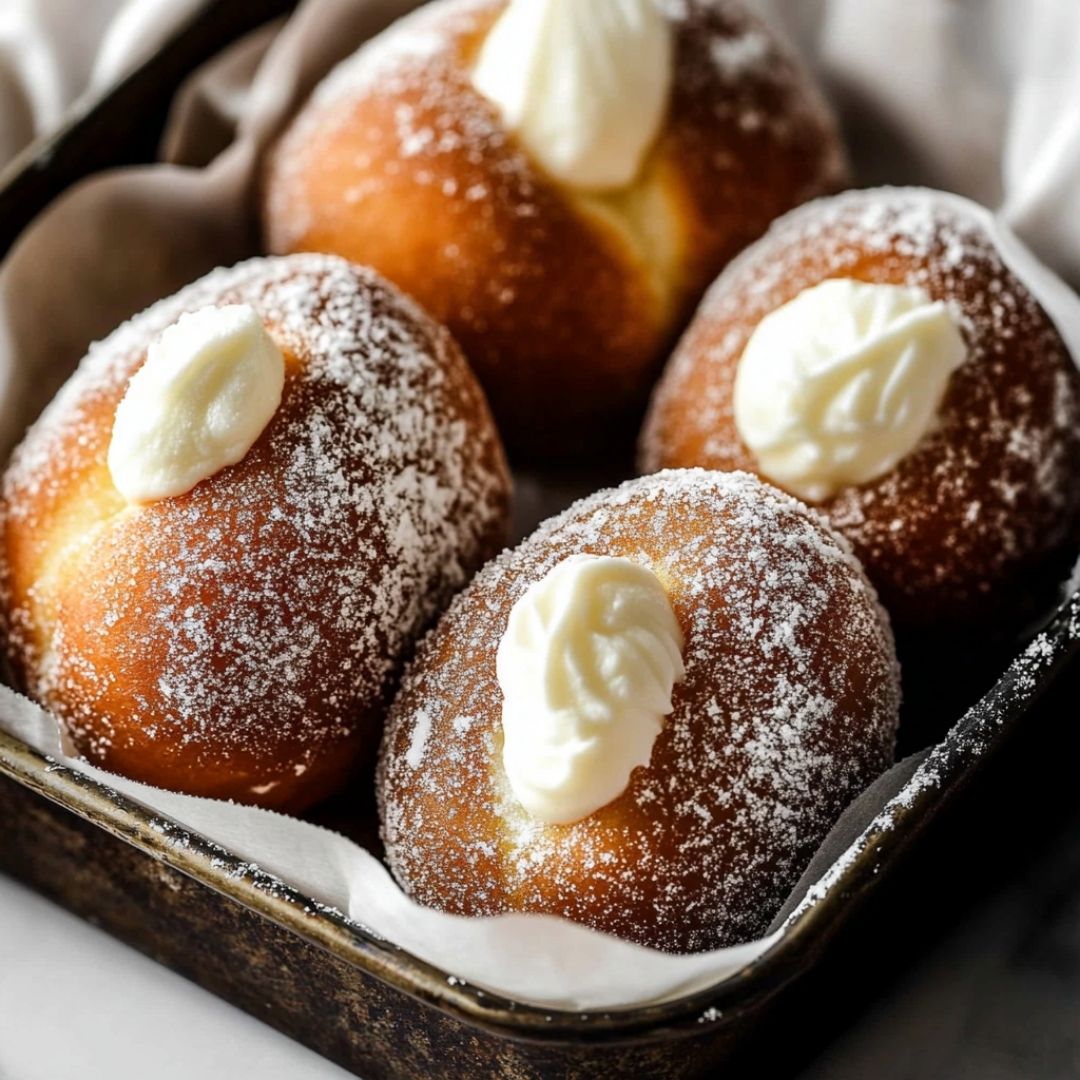
Whether you’re a seasoned donut pro or still learning how to measure flour without making a snowstorm (been there!), this recipe is designed for real-life kitchens and real-life messes. It’s the kind of bake that turns an ordinary weekend into a memory. We’re talking pillowy brioche dough, a velvety smooth vanilla custard center, and a coating of sugar that crunches just slightly with each bite.
This isn’t a bakery-secret, high-stress project. Like everything at Kitchen Yumy, it’s doable, delicious, and brutally taste-tested by my own family. Because let’s be honest—if it can win them over, it’s a keeper.
Ready to roll up your sleeves and fry up a little joy? Let’s dive into every step of making Bavarian cream donuts that feel like they came straight from your favorite café—but even better, because you made them.
Introduction to Bavarian Cream Donuts
What Makes Bavarian Cream Donuts Special
Bavarian Cream Donuts are a unique pastry hybrid: the soft, deep-fried outer shell of a yeasted brioche donut meets the smooth decadence of custard cream inside. Unlike jam-filled or chocolate-glazed donuts, these are subtle, elegant, and silky. The custard isn’t too sweet; it’s rich but light, thanks to the whipped cream folded into the base.
Unlike typical donut shop options that often use artificial thickeners, this homemade version uses real egg yolks, whole milk, and butter—just like traditional European pastries. The texture? Think creamy pudding in a buttery-soft shell.
Brief History and Popularity of Bavarian Donuts
Bavarian cream has roots in European dessert traditions, particularly in Germany and Austria. Though it didn’t start as a donut filling, American bakeries adapted it, especially in the Northeast and Midwest. Over time, it became a staple in bakeries and coffee shops due to its luxurious taste and texture.
Today, Bavarian cream donuts are known for their upscale bakery appeal. They’re less common than their cousins—Boston cream and jelly donuts—but when done right, they offer a more refined flavor.
Print
Bavarian Cream Donuts
- Total Time: 3 hrs
- Yield: 16 donuts 1x
- Diet: Vegetarian
Description
This Bavarian Cream Donuts Recipe combines soft brioche donuts with silky custard filling. Perfectly golden and sugar-dusted, these homemade treats rival any bakery classic.
Ingredients
Brioche Donuts:
4 1/2 cups (540g) all-purpose flour
2 1/4 tsp (7g) instant yeast
3 Tbsp (36g) granulated sugar
1 tsp salt
2 large eggs (room temperature)
2 large egg yolks (room temperature)
1/2 cup (113g) salted butter (softened)
1 cup (8oz) water
1 cup (200g) granulated sugar (for coating)
1 tsp cinnamon and/or 1/2 tsp vanilla powder (for coating)
48 oz canola, sunflower, or vegetable oil
Custard:
3 large egg yolks
1/2 cup (100g) granulated sugar
1/8 tsp salt
3/4 cup (180mL) whole milk
2 Tbsp (28g) salted butter (softened)
Whipped Cream:
1 1/3 cups (300mL) heavy whipping cream (cold)
1/4 cup (30g) powdered sugar
Instructions
1. Add flour, yeast, sugar, and salt to a stand mixer bowl. Mix in eggs, yolks, butter, and water. Knead for 10–15 minutes until dough forms a ball and passes windowpane test.
2. Grease bowl, cover, and proof dough in a warm place until doubled in size (1–2 hours).
3. Punch down and divide dough. Roll into 16–20 balls. Place on parchment squares. Cover and proof for another 30–40 minutes.
4. Heat oil to 360°F. Fry donuts 1–2 minutes per side until golden. Drain and toss in sugar with cinnamon or vanilla powder.
5. Make custard by whisking egg yolks, sugar, salt, and milk over medium heat until thick. Remove from heat and add butter. Chill completely.
6. Whip cream with powdered sugar to soft peaks. Fold into cooled custard to create Bavarian cream.
7. Fill cooled donuts using a piping bag. Serve fresh or chill before serving.
Notes
Avoid overfilling to prevent leaks.
Use a candy thermometer to monitor frying temperature for perfect texture.
Best served the same day; store in the refrigerator for up to 2 days.
Unfilled donuts can be frozen for up to 1 month.
- Prep Time: 2 hrs
- Cook Time: 30 mins
- Category: Desserts
- Method: Fried
- Cuisine: American
Nutrition
- Serving Size: 1 donut
- Calories: 310
- Sugar: 18g
- Sodium: 120mg
- Fat: 17g
- Saturated Fat: 9g
- Unsaturated Fat: 7g
- Trans Fat: 0g
- Carbohydrates: 36g
- Fiber: 1g
- Protein: 5g
- Cholesterol: 85mg
Keywords: Bavarian Cream Donuts Recipe, custard filled donuts, homemade brioche donuts
Key Ingredients for Authentic Bavarian Cream Donuts
Essential Ingredients for Brioche Donuts
To create that soft, buttery texture that sets Bavarian cream donuts apart, you need a rich brioche-style dough. This dough uses a higher fat content than standard donut dough, which gives it a delicate crumb and a slightly chewy bite.
Here’s what you’ll need:
| Ingredient | Purpose |
|---|---|
| All-purpose flour | The base structure of the dough |
| Instant yeast | Helps the dough rise and become fluffy |
| Granulated sugar | Adds sweetness and aids in browning |
| Salt | Enhances flavor |
| Eggs & yolks | Add richness, color, and structure |
| Salted butter | Adds fat and flavor |
| Water | Helps bring the dough together |
The key is using room-temperature eggs and softened butter, which ensures the dough is smooth and workable. The eggs also contribute to that gorgeous golden hue once fried.
What Goes into the Creamy Custard Filling
The soul of a Bavarian cream donut lies in its custard. This isn’t just any pudding—it’s a silky pastry cream blended with airy whipped cream, creating a luxurious texture. Here’s a breakdown of the main ingredients:
| Custard Ingredient | Why It Matters |
|---|---|
| Egg yolks | Create a smooth, rich base |
| Granulated sugar | Sweetens the cream and balances the egginess |
| Salt | Brings out the depth of flavor |
| Whole milk | Full-bodied, creamy texture |
| Salted butter | Adds a hint of savory depth |
| Heavy whipping cream | Adds volume and a mousse-like consistency |
| Powdered sugar | Lightens and sweetens the whipped cream component |
Some variations use vanilla bean paste or a splash of rum for flavor complexity. But for this classic version, the buttery richness and hint of vanilla are enough.
Step-by-Step Dough Preparation
Mixing and Kneading Techniques
The dough for Bavarian cream donuts is brioche-based, which means it’s rich, soft, and needs proper kneading to develop its signature texture. To begin, gather your stand mixer fitted with the hook attachment.
Here’s how to build a perfect dough:
- Combine dry ingredients: In your mixer bowl, add 4 ½ cups all-purpose flour, 2 ¼ tsp instant yeast, 3 tbsp sugar, and 1 tsp salt.
- Add the wet ingredients: Crack in 2 large eggs, 2 egg yolks, and pour in ½ cup softened butter and 1 cup water.
- Mix on low until a shaggy dough forms, then bump the mixer up to medium-low.
- Knead for 10–15 minutes until the dough becomes elastic and starts to clean the sides of the bowl.
Troubleshooting Tip: If the dough sticks too much and doesn’t form a ball, add 1–2 tbsp flour and continue kneading. Your dough should pass the windowpane test: stretch a small piece between your fingers—it should stretch thin without tearing.
First Proof: How to Know It’s Ready
Proofing is where flavor and structure develop. Once your dough is kneaded:
- Push the dough to one side of the bowl and grease the exposed side.
- Turn it over and grease the other side.
- Cover with plastic wrap and place in a warm environment like a stovetop or sunlit area.
- Let it double in size, which usually takes 1–2 hours.
The dough should feel pillowy and airy when poked, a sure sign that it’s proofed properly.
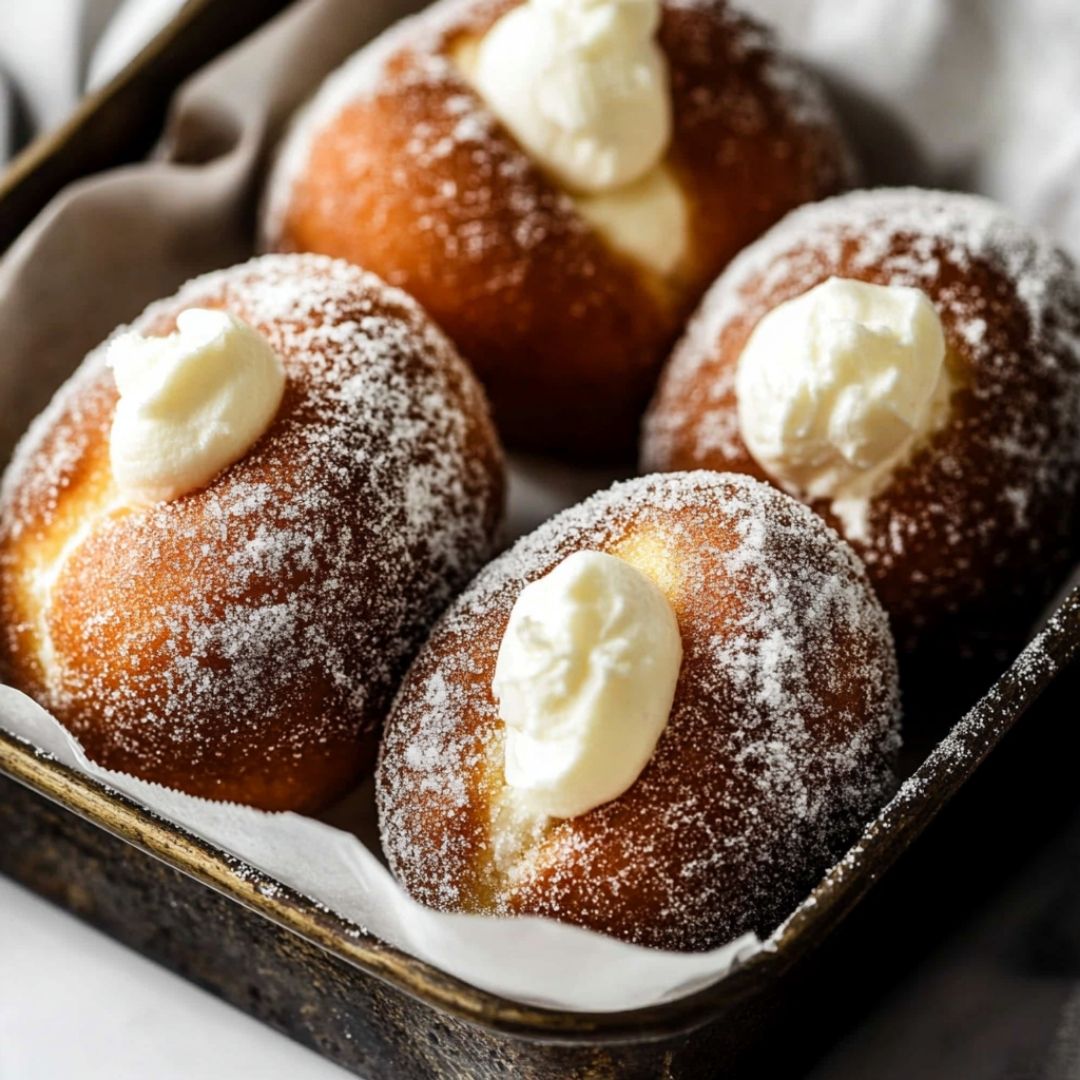
Shaping and Second Proof of Donuts
Rolling and Dividing the Dough Properly
Once your brioche dough has doubled in size, it’s time to shape it into individual donuts. This step is critical because even shaping ensures even frying and beautiful presentation.
Here’s the breakdown:
- Lightly flour a clean work surface and gently punch down the dough to deflate it.
- Divide the dough into two equal halves.
- Roll each half into a log shape, and slice each log into 8–10 even chunks.
- Roll each chunk into a tight, smooth ball by tucking the edges underneath and rolling in a circular motion on the surface.
Pro Tip: For uniform results, weigh each piece on a kitchen scale. Aim for approximately 60–70g per donut.
Place each dough ball onto a 4×4” parchment square on lined baking sheets, giving them space to expand.
Second Proofing and Why It Matters
The second proof is shorter but just as essential. It allows the gluten to relax and the dough balls to puff slightly, resulting in light, airy donuts after frying.
To proof:
- Cover the trays loosely with plastic wrap.
- Set them in a warm, draft-free area for 30–40 minutes.
- The dough should become soft, with a gentle spring when touched.
Skipping this proof leads to dense, heavy donuts. If your kitchen is cool, turn your oven to its lowest setting for 1–2 minutes, turn it off, and use it as a warm proofing chamber.
Frying the Donuts to Golden Perfection
Oil Temperature Control Tips
Frying is where the magic happens, and controlling your oil temperature is crucial. Too hot, and your donuts burn outside but stay raw inside. Too cool, and they’ll soak up oil and turn greasy.
Here’s how to nail it:
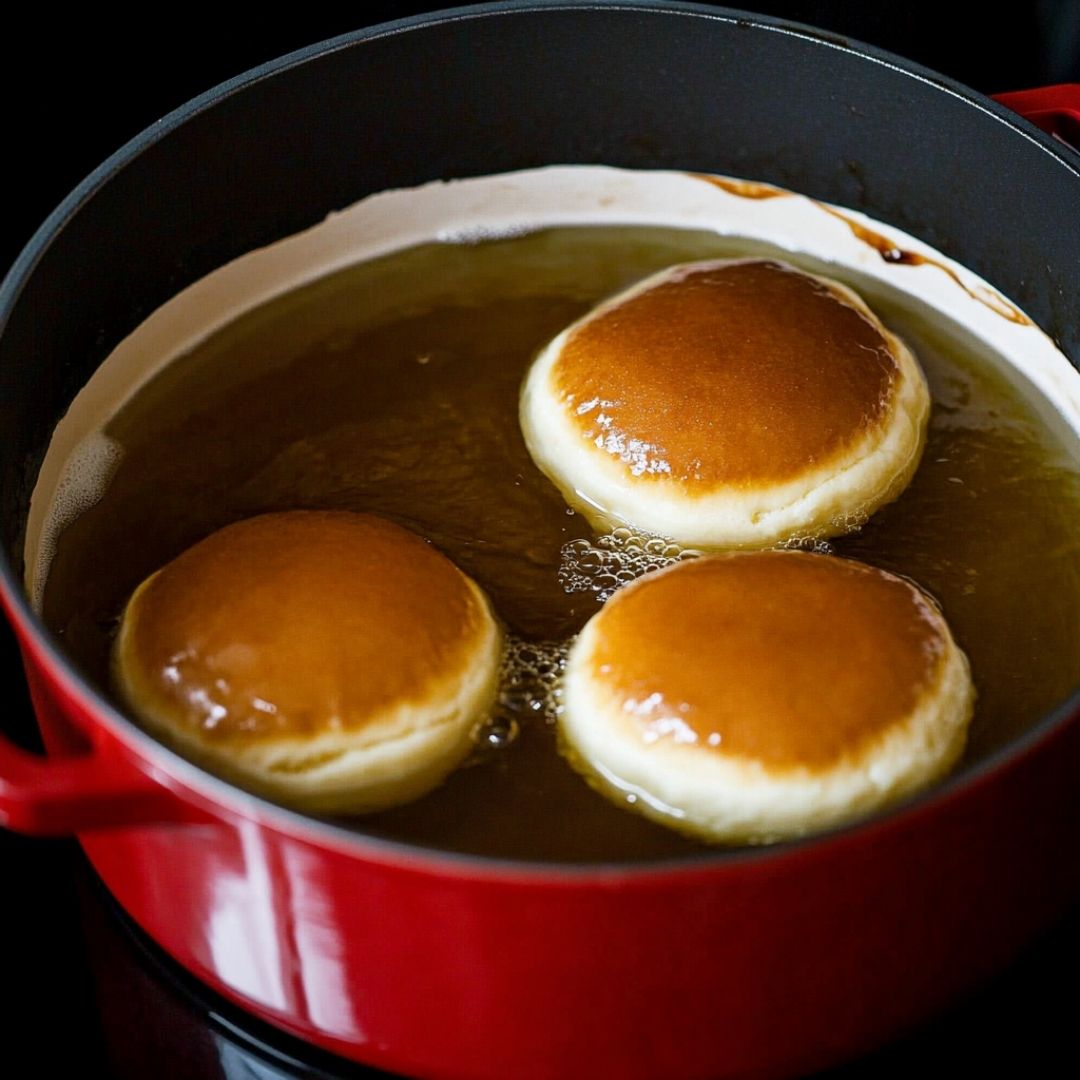
- Use a deep, heavy-bottomed pot—this maintains steady heat.
- Add canola, sunflower, or vegetable oil (48 oz) and heat to 360°F (182°C) using a candy thermometer.
- Once it hits the target, lower the heat to maintain it. Keep the range between 350–370°F.
- Fry 2 to 4 donuts at a time, depending on your pot’s size—avoid overcrowding.
Each side should take 1 to 2 minutes to turn golden brown. Use a slotted spoon to flip the donuts and remove them when browned evenly.
Don’t walk away from the stove—timing and color are everything. If one side is slow to brown, slightly raise the heat.
Frying and Sugar Coating Techniques
After frying, transfer the donuts to cooling racks lined with paper towels to drain any excess oil. While they’re still warm:
- Toss them in a sugar coating made with 1 cup granulated sugar and either 1 tsp cinnamon or ½ tsp vanilla powder.
This final coating adds a sweet, crisp texture to the outside, balancing the soft, creamy inside to come.
Making the Perfect Bavarian Custard Cream
Cooking and Thickening the Custard Base
The heart of any Bavarian cream donut is the luscious custard that fills it. To get it right, you’ll need patience, gentle heat, and quality ingredients.
Here’s how to make the custard base:
- In a medium saucepan, whisk together:
- 3 large egg yolks
- ½ cup granulated sugar
- ⅛ tsp salt
- Slowly whisk in ¾ cup (180mL) whole milk until smooth and fully combined.
- Place the saucepan over medium heat, stirring constantly with a heatproof spatula. Do not let it boil.
- Cook until the mixture thickens and coats the back of a spoon—this usually takes about 6–8 minutes.
- Remove from heat and whisk in 2 tbsp softened salted butter for added richness.
Pro Tip: For added flavor, consider whisking in ½ tsp vanilla bean paste or a splash of almond extract.
Transfer the custard to a bowl, press plastic wrap against the surface to prevent skin from forming, and let it cool completely in the fridge.
Cooling and Mixing with Whipped Cream
Once your custard is fully chilled, it’s time to lighten it with whipped cream to create that iconic airy Bavarian texture.
Here’s how:
- In a large cold bowl, whip:
- 1 ⅓ cups (300mL) cold heavy cream
- ¼ cup powdered sugar
- Beat until soft peaks form. Don’t over-whip—it should be fluffy but not stiff.
- Gently fold the whipped cream into the chilled custard using a silicone spatula. Work in batches to avoid deflating it.
The final mixture should be light, creamy, and silky smooth—perfect for piping into your donuts.
Filling and Serving Bavarian Cream Donuts
Piping Techniques to Fill Donuts Without Mess
Now that your donuts are golden and your custard is perfectly creamy, it’s time to bring them together. Filling these beauties is easier than it looks—if you have the right tools and a little technique.
What you’ll need:
- A piping bag with a Bismarck tip or medium round tip
- A skewer or small knife
- Your chilled Bavarian cream filling
Step-by-step filling guide:
- Use a skewer to poke a hole into the side of each donut, going about halfway through. Wiggle slightly to make space for the filling.
- Fill a piping bag with the Bavarian cream.
- Insert the piping tip into the donut and gently squeeze until you feel resistance or see the donut puff slightly.
Tip: Hold the donut with a paper towel while filling—it prevents sugar from rubbing off and helps you avoid mess.
Repeat until all donuts are filled and ready to serve.

How to Serve and Store Filled Donuts
Once filled, Bavarian cream donuts are best enjoyed fresh and slightly chilled—that way the custard sets beautifully and the brioche holds its fluff.
Serving Tips:
- Serve with a dusting of powdered sugar or a drizzle of chocolate ganache for a gourmet touch.
- Pair them with coffee, espresso, or a light fruit tea to balance their richness.
Storage Guide:
- Store filled donuts in an airtight container in the refrigerator for up to 2 days.
- Avoid stacking them—they’re delicate and can get squished.
- For longer storage, keep the unfilled donuts in the freezer and fill them the day you plan to serve.
Variations and Flavor Enhancements
Vanilla Bean, Chocolate, or Fruit-Infused Fillings
Bavarian cream is a classic, but that doesn’t mean you can’t switch things up. Once you’ve mastered the basic Bavarian cream donuts recipe, you can take it to the next level with exciting flavor infusions.
1. Vanilla Bean Bavarian Cream
Replace vanilla powder with real vanilla bean paste or scrape a vanilla pod directly into your milk mixture for an aromatic custard upgrade.
2. Chocolate Bavarian Cream
Stir 2 oz of melted semi-sweet chocolate into the warm custard before cooling it. The result? A mousse-like chocolate filling that’s deeply satisfying without being too sweet.
3. Raspberry or Strawberry Bavarian Cream
Mix 2 tablespoons of strained fruit puree (fresh or frozen) into the chilled custard before folding in the whipped cream. It adds color and a fruity zing that pairs beautifully with the soft brioche.
Creative Toppings and Finishing Ideas
Once filled, you can elevate your donuts with gourmet toppings that dazzle both visually and in flavor:
- Powdered sugar dusting: Classic and elegant.
- Ganache glaze: Dip just the tops in dark chocolate ganache for a Boston cream-style appearance.
- Crushed nuts: Sprinkle with crushed hazelnuts, pistachios, or toasted coconut.
- Drizzle with caramel: A ribbon of salted caramel on top of vanilla cream donuts creates a beautiful sweet-salty combo.
Troubleshooting & Pro Tips for Success
Common Donut Mistakes and How to Fix Them
Even seasoned bakers run into trouble making filled donuts. Here’s how to avoid the most common pitfalls when preparing your Bavarian cream donuts:
| Issue | Cause | Fix |
|---|---|---|
| Dough doesn’t rise | Yeast was expired or water too hot | Use fresh yeast and warm (not hot) water |
| Dough too sticky | Too much moisture or under-kneading | Add 1–2 tbsp flour and knead longer |
| Donuts too greasy | Oil too cold | Keep oil between 350–370°F |
| Donuts burnt outside, raw inside | Oil too hot | Lower heat and monitor with a thermometer |
| Custard too runny | Not cooked long enough | Cook until thick enough to coat the back of a spoon |
| Filling leaks out | Overfilled or not enough structure | Chill donuts before filling and avoid overfilling |
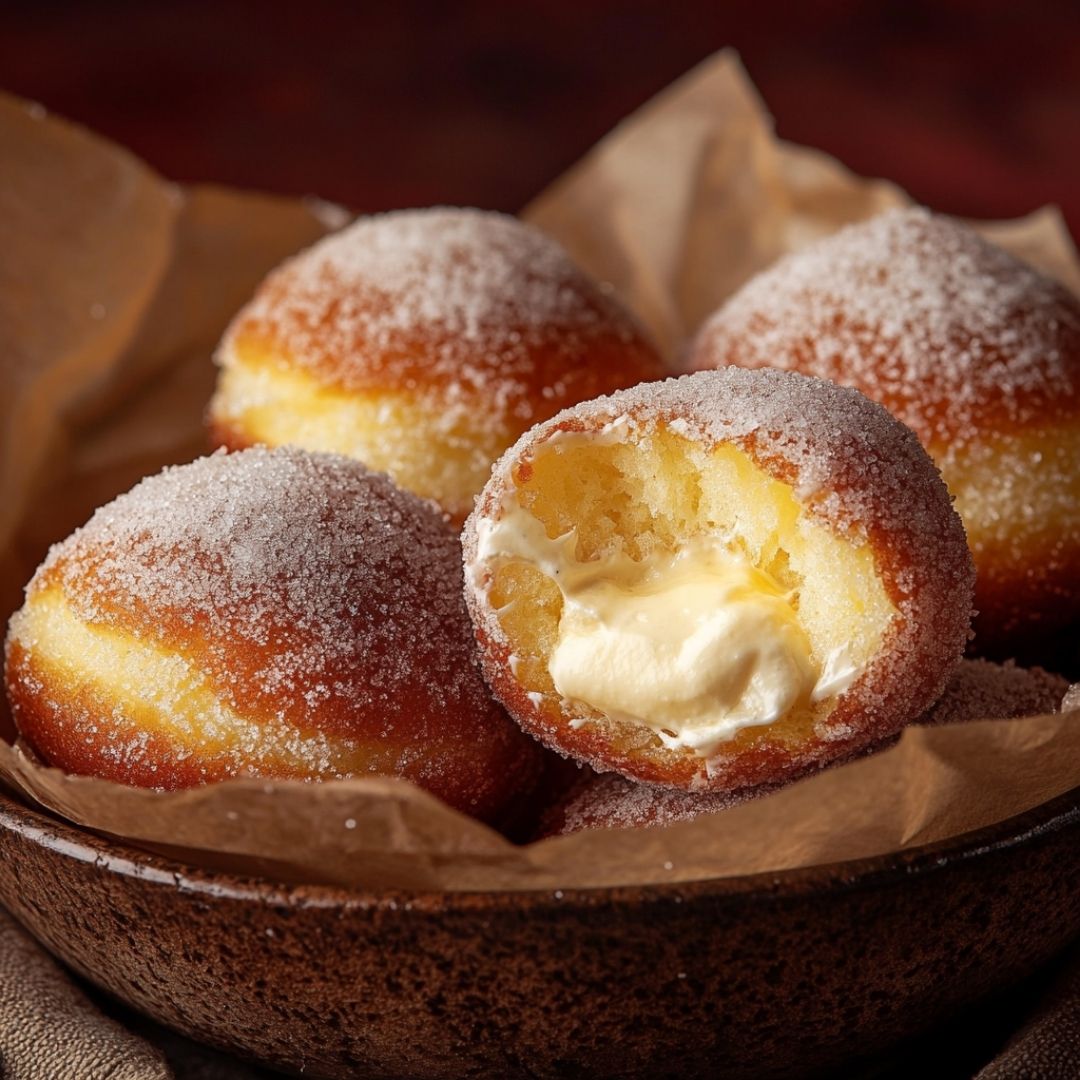
Expert Tip: Always use a thermometer when frying. Estimating oil temperature by eye often leads to disaster.
Expert Hacks for Better Results Every Time
Here are a few chef-approved tips to level up your Bavarian cream donut game:
- Weigh your ingredients for consistency—especially in the dough.
- Use room temperature ingredients: Eggs, butter, and milk mix better and rise more reliably.
- Chill the custard overnight: This deepens flavor and ensures a firm texture for piping.
- Freeze unfilled donuts: They thaw perfectly and make last-minute dessert prep easy.
- Use parchment squares for proofing: It makes transferring donuts to oil effortless without deflating them.
FAQ: Bavarian Cream Donuts
What is Bavarian cream in a donut?
Bavarian cream is a rich, smooth filling made from egg yolks, sugar, milk, and whipped cream. In donuts, it’s injected inside after frying, creating a luxurious, pudding-like texture with a subtle vanilla flavor.
What is the difference between a Boston cream donut and a Bavarian cream donut?
Boston cream donuts are filled with a thick custard and topped with chocolate glaze, while Bavarian cream donuts use a lighter, whipped filling and are usually sugar-coated or topped simply. The textures and flavor intensity differ significantly.
What is the yellow filling in donuts?
That’s often a vanilla or custard-based cream, usually made with eggs and milk. If it’s light and airy, it’s likely Bavarian cream. If thicker and more pudding-like, it’s a traditional pastry cream.
What does Bavarian cream taste like?
Bavarian cream is mildly sweet, creamy, and silky with hints of vanilla and butter. Thanks to the added whipped cream, it’s lighter than regular custard and melts on the tongue.
Fore more recipes follow me on facebook and pinterest.

